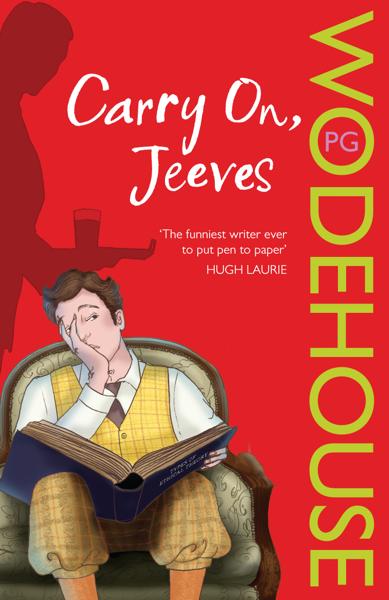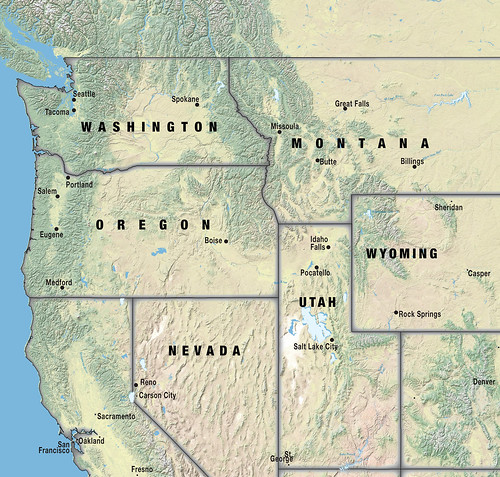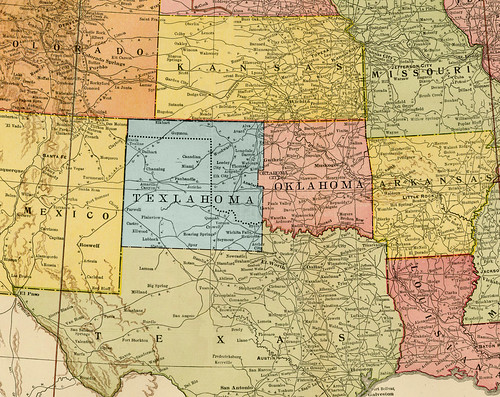Carry on, Jeeves
First published 1925
(ed. published 2008 by
Arrow Books, London)
"It was one of those still evenings you get in the summer, when you can hear a snail clear its throat a mile away. The sun was sinking over the hills and the gnats were fooling about all over the place" (p.28)
"Just as I heard these frightful words a fairly substantial beetle dropped from the bush to the back of my neck, and I couldn't even stir to squash the same, you will understand that I felt pretty rotten" (p.29)
(About a painting of a baby) "'All I tried was to give the little brute a cheerful expression. But, as it has worked out, he looks positively dissipated.' 'Just what I was going to suggest, old man. He looks as if he were in the middle of a colossal spree, and enjoying every minute of it. Don't you think so, Jeeves?' 'He has a decidedly inebriated air, sir.'" (p.54)
"She fitted into ny biggest arm-chair as if it had been built round her by someone who knew they were wearing arm-chairs tight about the hips that season [...her son's] chin gave up the struggle half way-down and he didn't appear to have any eyelashes" (p. 63)
"I'm never much of a lad till I've engulfed an egg or two and a beaker of coffee. [...]
'Won't you have an egg or something? Or a sausage or something? Or something?' 'No, thank you.' She spoke as if she belonged to an anti-sausage society or a league for the supression of eggs." (p. 78)
(Following a binge) "'If you ever see me sober, old top,' he said with a kind of holy exaltation, 'tap me on the shoulder and say, "Tut! Tut!" and I'll apologise and remedy the effect' [...] 'What's the use of a great city having temptations of fellows don't yield to them? Makes it so bally discouraging for the great city." (p. 70)
"The days down on Long Island have fourty-eight hours in them; you can't get to sleep at night because of the bellowing of the crickets" (p. 76)
"And so the merry party began. It was one of those jolly, happy, bread-crumbling parties where you cough twice before you speak, and then decide not to say it after all. After we had had an hour of this wild dissipation, Aunt Isabel said she wanted to go home." (p. 132)
"Rocky was holding on to the table as if it was his only friend. [...] as she said it he perked up, let go of the table, and faced her with gleaming eyes. [...] Rocky grabbed the table again. He seemed to draw a lot of encouragement from that table." (p.136)
"It looked at first as though the meal was going to be one of those complete frosts which occur from time to time in the career of a constant luncher-out. Biffy, a very C-3 host, contributed nothing to the feast of reason and flow of soul beyond the occasional hiccup." (p. 155)
"'Stop me if you've heard it before. Chap goes up to a deaf chap outside the exibition and says, "Is this Wembley?" "Hey?" says the deaf chap. "Is this Wembley?" says chap. "Hey?" says the deaf chap. "Is this Wembley?" says chap. "No, Thursday," says the deaf chap. Ha, ha, I mean, what?'
The merry laughter froze on my lips. Sir Roderick sort of just waggled an eyebrow in my direction and I saw that it was back to the basket for Bertram." (p. 156)
"I do not know if you know this Palace of Beauty place? It's a sort of aquarium full of the delicately-nurtured instead of fishes. You go in, and there is a kind of cage with a female goggling out at you through a sheet of plate glass. She's dressed in some weird kind of costume, and over the cage is written 'Helen of Troy.' You pass on to the next, and there's another one doing jiu-jitsu with a snake. Sub-title Cleopatra." (pp. 163-164)
"Honoria Glossop has a voice like a lion tamer making some authoritative announcement to one of the troupe" (p. 181)
Next post in this series: Very Good, Jeeves
Sources:
As given. Picture taken from http://wodehouse.ru/cover/e/35-22.jpg, last visited 29.5.2010

















